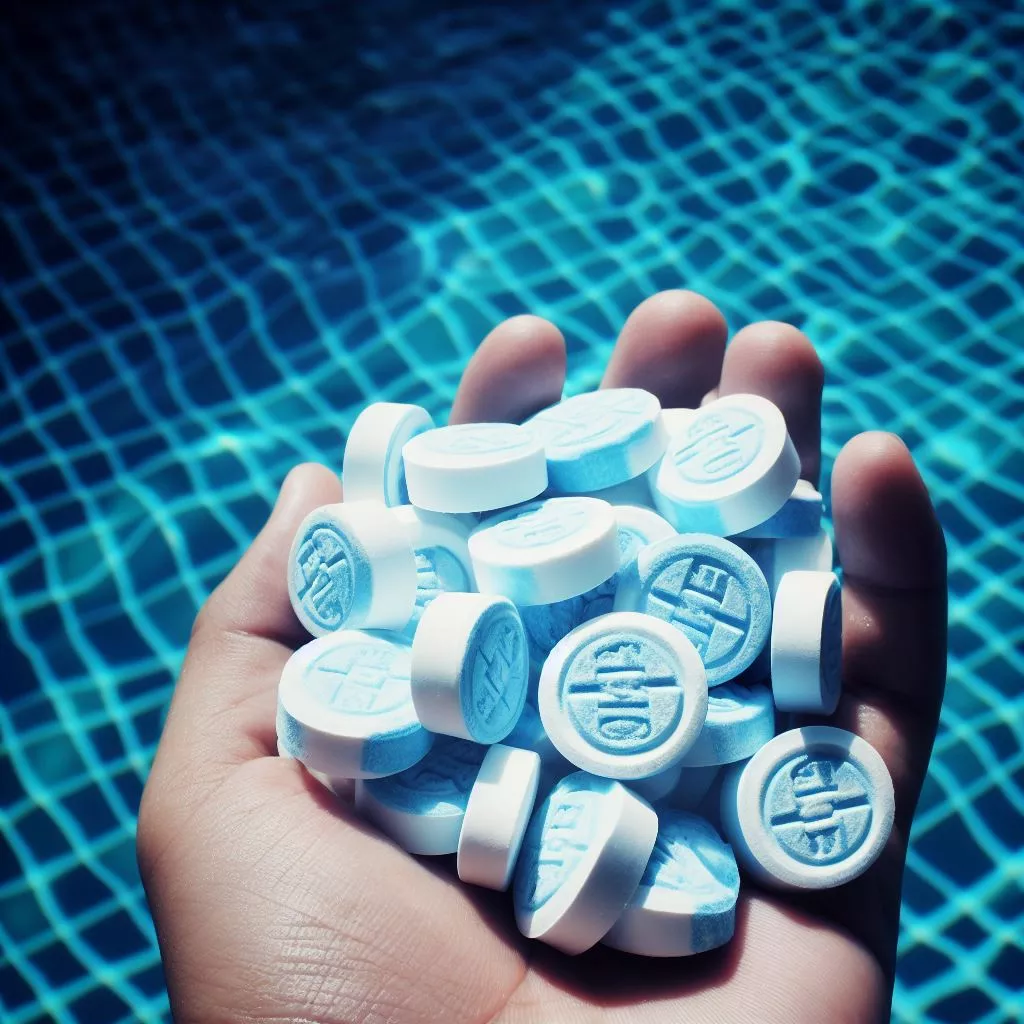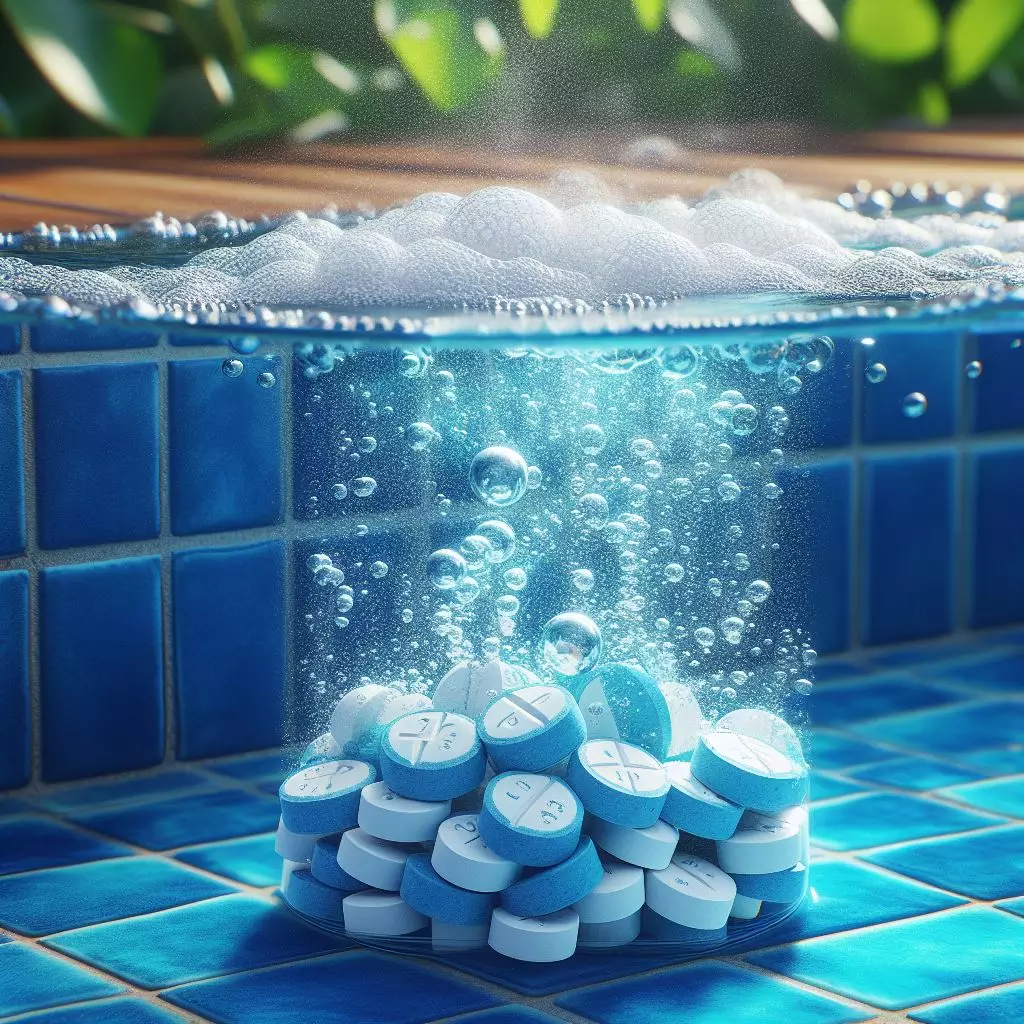In the quest for sustainable leisure and recreation, maintaining a clean and hygienic swimming pool has become not just a matter of hygiene but also an embodiment of environmental responsibility. Chlorine tablets, or pool chlorine tablets, play a pivotal role in this endeavor, effectively sanitizing water against harmful bacteria and algae. However, with increasing awareness about the impact of chemicals on the environment and human health, selecting the right pool chlorine tablets has become a delicate balance between efficacy and eco-friendliness. This guide delves into the key considerations when choosing pool chlorine tablets with an emphasis on environmental consciousness.

I. Understanding Chlorine’s Role and Environmental Impact
1. Primary Function:
Chlorine tablets are primarily used to sanitize pool water, eliminating bacteria, viruses, and algae that can contaminate the water and pose health risks.
2. Environmental Concerns:
Traditional chlorine-based products can contribute to the formation of chloramines, which can irritate swimmers’ eyes and skin, and may also contribute to the formation of chlorinated organic compounds (COCs) that are harmful to aquatic life when discharged into the environment.
3. Transition to Greener Solutions:
The shift towards eco-friendly pool maintenance necessitates exploring chlorine alternatives or selecting chlorine products with minimized environmental impact.
II. Evaluating Eco-Friendly Chlorine Tablets
1. Slow-Dissolving Formula:
Opt for chlorine tablets designed to dissolve slowly and evenly, ensuring consistent chlorination without overdosing. This reduces the risk of excessive chlorine release, which can lead to wasteful runoff and potential harm to the surrounding ecosystem.
2. Stabilized Chlorine:
Look for stabilized chlorine tablets, which contain cyanuric acid (CYA) or other stabilizers. These stabilize the chlorine in sunlight, preventing it from degrading rapidly and minimizing the need for frequent re-chlorination, thereby reducing chemical waste.
3. Natural or Mineral-Based Alternatives:
Consider mineral-based sanitizers or alternative chlorination systems like ozone, saltwater chlorination, or UV disinfection. While these may not be strictly “chlorine tablets,” they offer environmentally friendly alternatives that minimize chemical usage and byproducts.

III. Checking for Certifications and Standards
1. Eco-Labels:
Seek out products with eco-friendly certifications such as NSF/ANSI 60 (for drinking water additives) or those endorsed by environmental organizations. These certifications indicate the product’s compliance with strict safety and environmental standards.
2. Compliance with Regulations:
Ensure the chosen chlorine tablets comply with local and national regulations regarding pool water treatment and chemical discharge. This helps prevent legal issues and ensures responsible pool management.
IV. Considering User Health and Safety
1. Low Irritation Formula:
Select chlorine tablets that minimize the formation of chloramines and other irritants, making for a more pleasant swimming experience for all users, including those with sensitive skin or respiratory conditions.
2. Easy Handling:
Choose products with easy-to-open packaging and clear usage instructions to minimize the risk of accidental spills or exposure during handling.
V. Economic Efficiency and Long-Term Savings
1. Cost-Benefit Analysis:
While initial investment costs may vary, consider the long-term savings associated with reduced chemical usage, lower maintenance costs, and potential energy savings from more efficient systems.
2. Durability and Shelf Life:
Ensure the chlorine tablets have a long shelf life and are packaged to maintain their potency, reducing waste due to expiration.
VI. Research and Consultation
1. Customer Reviews:
Read customer reviews and testimonials to gain insights into real-world experiences with different brands and types of chlorine tablets.
2. Expert Consultation:
Consult with pool maintenance professionals or environmental experts to get tailored advice based on your specific pool needs, location, and environmental concerns.
Conclusion
In the realm of eco-conscious pool maintenance, selecting the right chlorine tablets is a critical step towards balancing hygiene, safety, and environmental responsibility. By prioritizing slow-dissolving formulas, stabilized chlorine, natural alternatives, eco-labels, and user safety, pool owners can make informed choices that minimize the impact on the environment while maintaining a pristine swimming environment. Moreover, investing in long-term savings and seeking expert guidance ensures that the decision is both environmentally responsible and financially prudent. As we continue to navigate the path towards greener living, these considerations will guide us towards a more sustainable future in the world of pool sanitation.

 Instant
Quote
Instant
Quote Email
Us
Email
Us